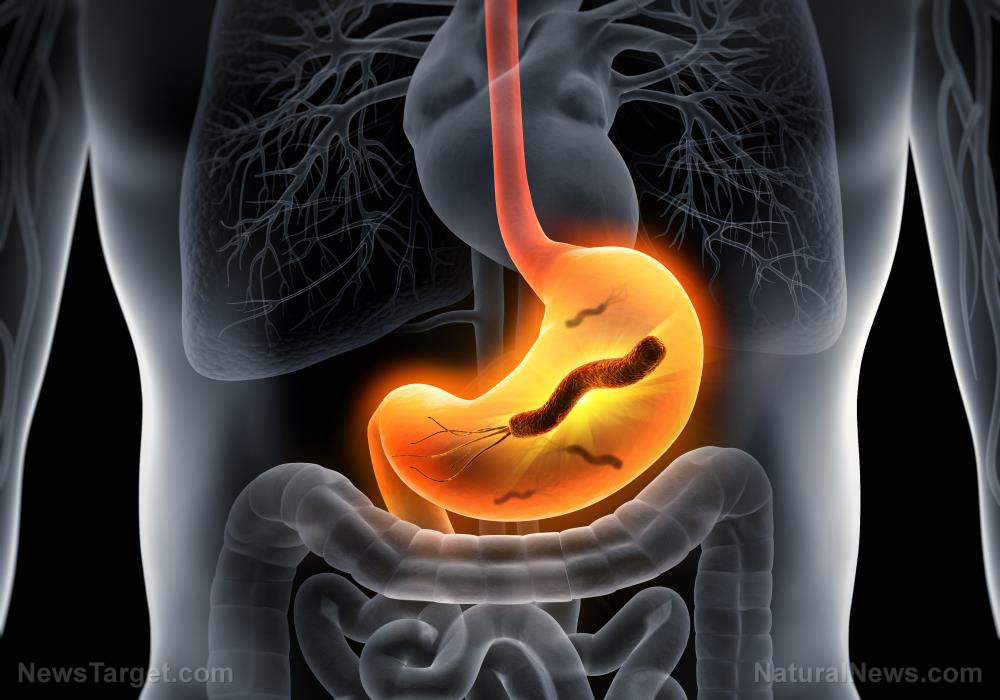Relying on proton-pump inhibitors to relieve heartburn can leave you vulnerable to superbugs
12/24/2018 / By Vicki Batts

Proton pump inhibitors are used by millions of people looking for heartburn relief, but new evidence shows that these drugs may come at an unexpected cost. Microbiologists from Plymouth Hospitals NHS Trust have found that patients taking proton pump inhibitors (PPIs) are at markedly greater risk of catching drug-resistant bacterial infections. With drug-resistant microbes now pushing global health toward “the edge of a crisis,” any medication that triples your risk of catching a superbug should be approached with extreme caution.
And yet, PPIs are widely used and wildly overused; a recently published paper calling for an end to over-prescribing of PPIs estimated that 70 percent of PPIs are prescribed without clear indication. More, patients often continue to take a PPIs for years on end, even though the maximum duration of usage is supposed to be just four months. This alone is concerning, but when coupled with the new revelations on the threat PPIs pose to health, these reckless prescribing practices become even more dangerous.
Heartburn drugs increase risk of infection with superbugs
It’s estimated that two million people are infected with an antibiotic-resistant bacteria every year in the United States. Of those, 23,000 people will die as a direct result of their infection, and an untold number of others will die from complications related to their infection. Drug-resistant microbes are on the rise — and it turns out taking a PPI can make you more susceptible to them.
As Daily Mail reports, a team of microbiologists at Plymouth Hospitals NHS Trust, located in England, studied 126 hospital patients that had been infected with a drug-resistant bacteria known as ESBL-enterobacteriae, and compared them to a control group of the same size.
Enterobacteriae are typically found in the lower half of the digestive tract and pose no threat. However, once these bugs make it to other areas of the body, they can cause fatal infections. ESBL bugs are bacteria that are immune to common antibiotics, like penicillin.
The team found that the infected patients were three times more likely to have taken a PPI than one of the healthy controls.
Study leader Dr. Richard Cunningham has studied the deleterious effects of PPI drugs in the past, finding that they increased the risk of another type of bacterial infection some 15 years ago.
In past research, Cunningham helped link PPI usage with an increased risk of infection with Clostridium difficile, commonly known as “C. diff.”
“It will be interesting to see how long it takes for the message to spread,” Cunningham commented.
‘It took years for the link between PPIs and C. difficile to become accepted. Hopefully the medical profession will be primed to take this more seriously,” he added.
Alternative ways to fight heartburn
While PPI medications may not be so great, there are many tips and tricks for preventing and treating heartburn naturally. As Healthline reports, avoiding overeating is actually one of the first steps you can take on your own to help prevent heartburn. There is a muscle that connects your esophagus and stomach, known as the lower esophageal sphincter, and it acts like a valve. In people with acid reflux this muscle may be weak or overstretched, which means it can allow acid from the stomach to enter the esophagus.
Losing weight can also be beneficial if you are overweight, as that too can worsen the symptoms of heartburn. Limiting your intake of carbohydrates, alcohol and caffeine are all tips proven to help reduce your risk of having a heartburn episode. Avoiding food and drinks that are known to cause heartburn, like raw onion or bubbly beverages, are some other steps to consider.
After the heartburn has set in, there are still options for natural relief. Drinking a hot cup of fennel, chamomile or ginger tea is a good way to start, especially if you add some soothing Manuka honey to the mix. Recent research has also pointed to orange peel extract as a natural heartburn remedy.
Learn more about natural solutions to everyday ailments at AlternativeMedicine.news.
Sources for this article include:
Submit a correction >>
Tagged Under:
antacids, Big Pharma, heartburn, heartburn relief, infections, medication, natural cures, natural medicine, outbreak, pain relief, PPIs, Prescription drugs, Proton pump inhibitors, superbugs
This article may contain statements that reflect the opinion of the author
RECENT NEWS & ARTICLES
Infections.News is a fact-based public education website published by Infections News Features, LLC.
All content copyright © 2018 by Infections News Features, LLC.
Contact Us with Tips or Corrections
All trademarks, registered trademarks and servicemarks mentioned on this site are the property of their respective owners.





















